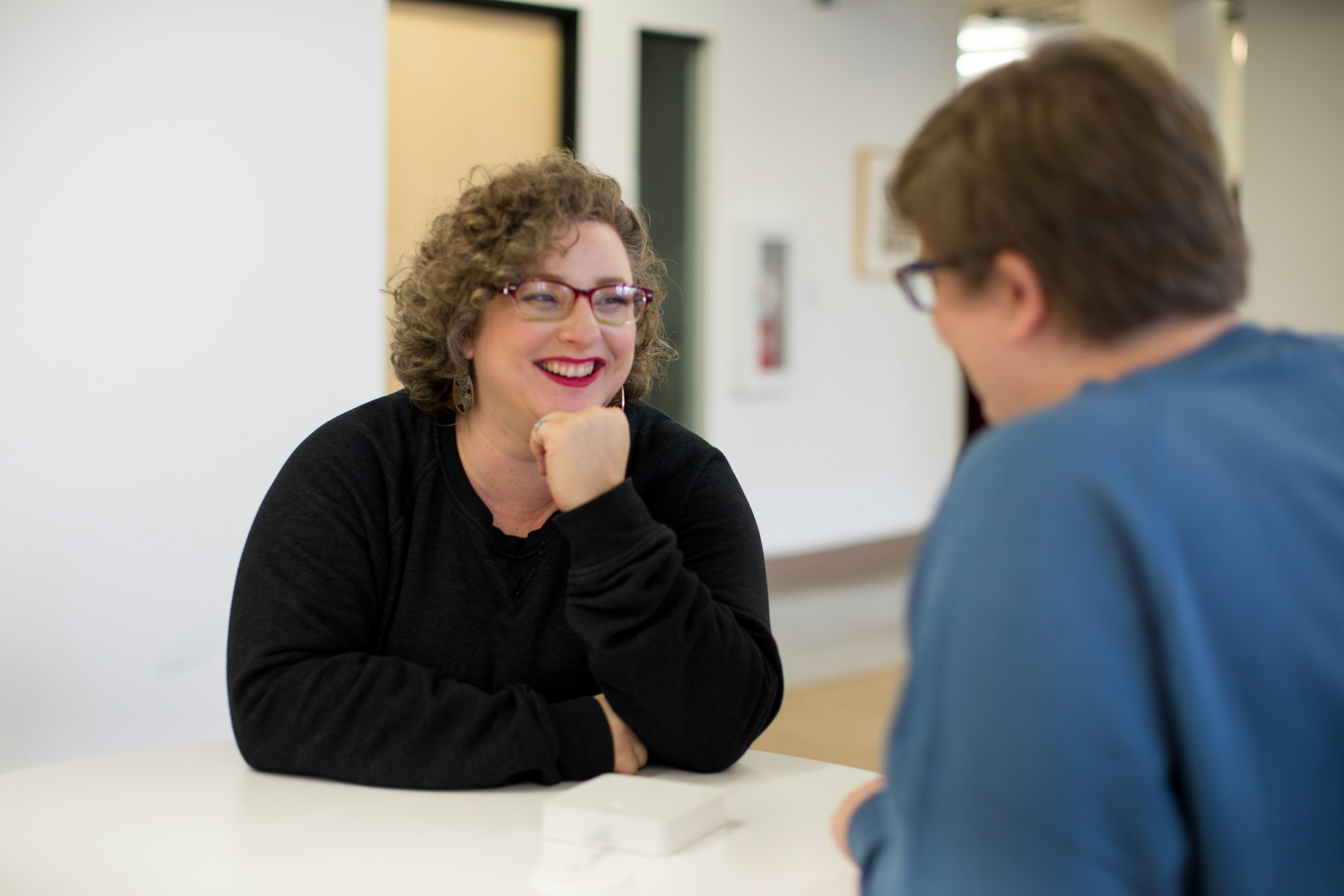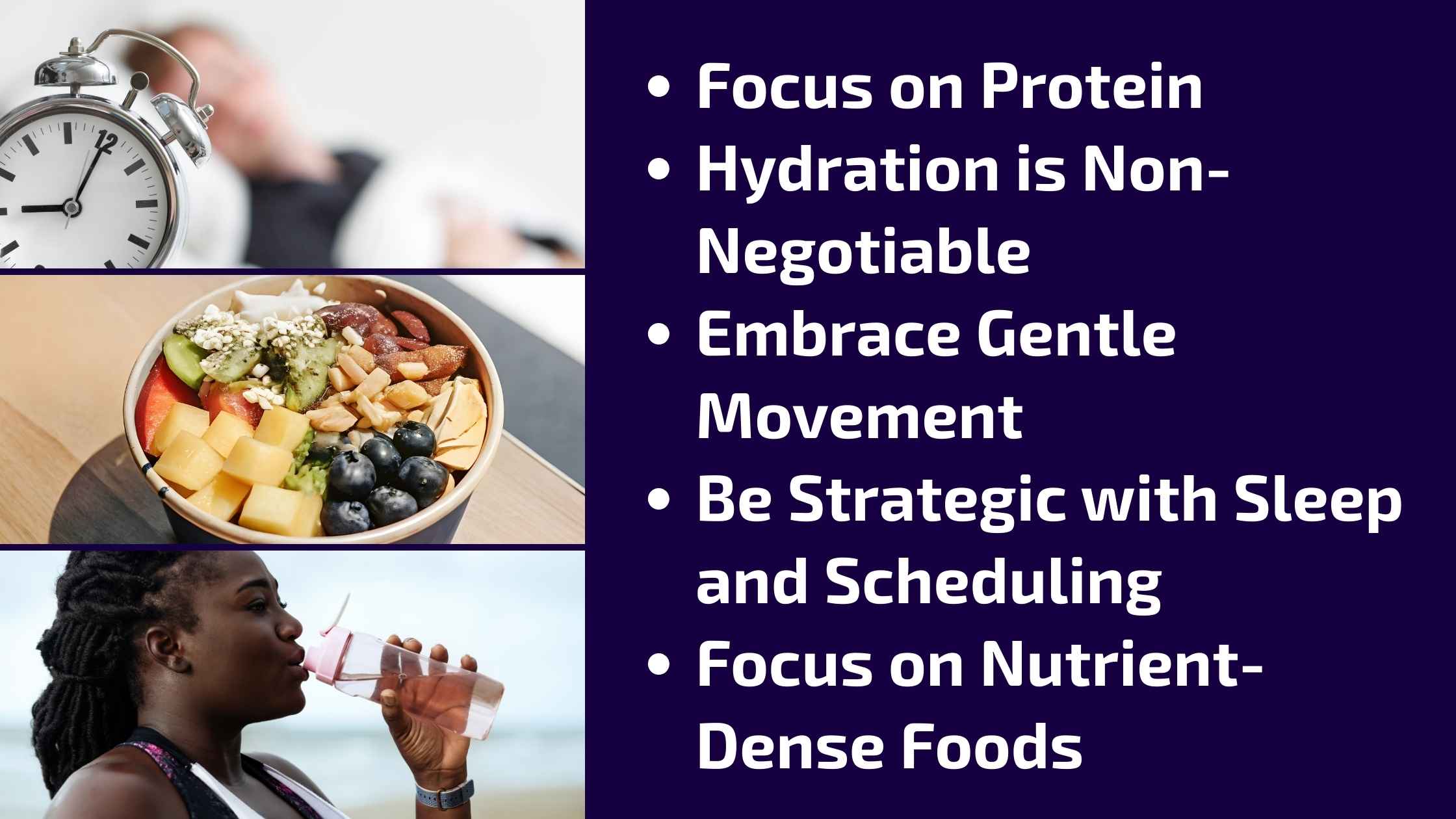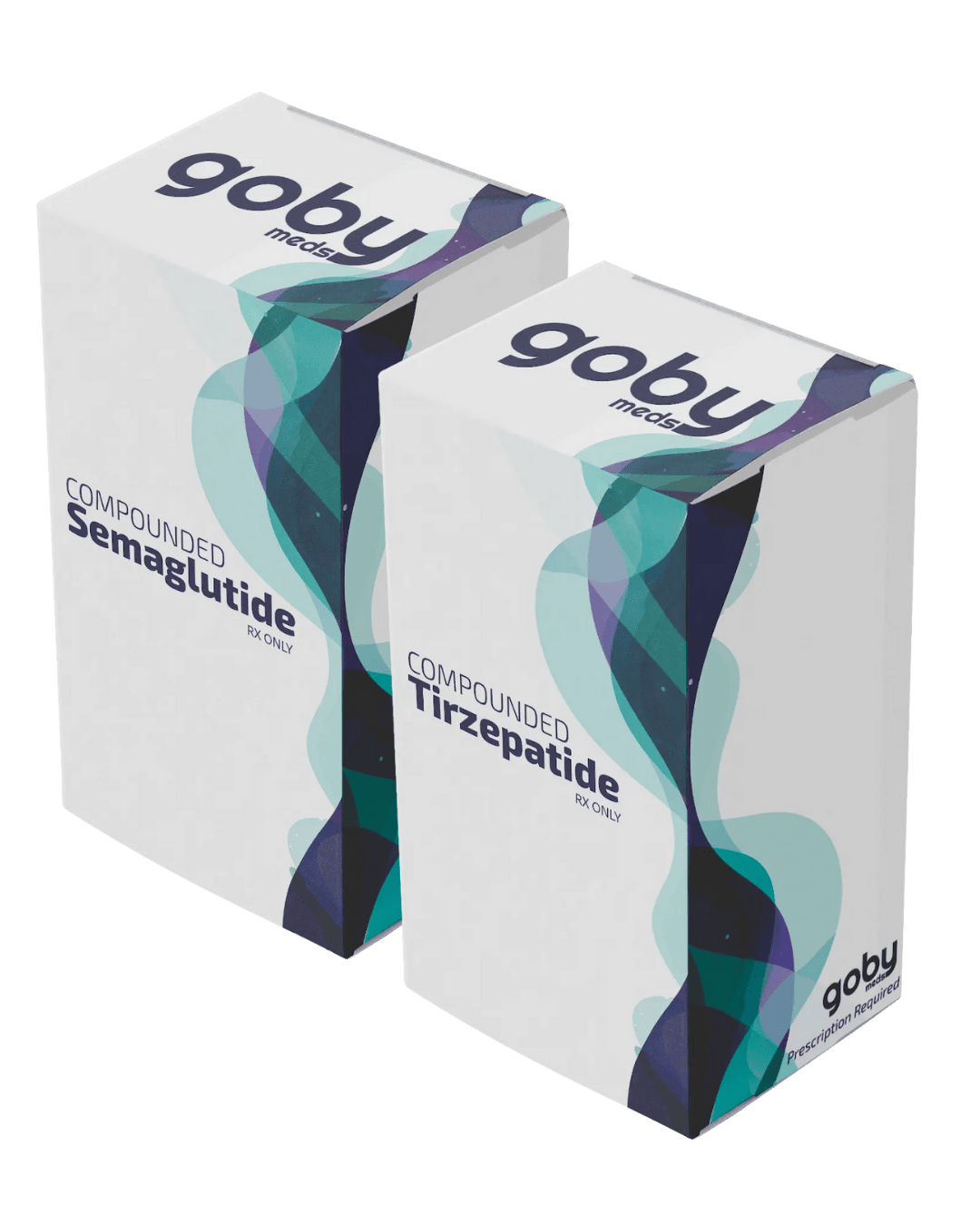The GLP-1 Slump: How to Overcome Fatigue and Boost Energy
You’ve taken a huge step on your health journey by startg a GLP-1 or GLP-1/GIP medication with GobyMeds. You’re noticing the "food noise" is quieter and you're feeling full faster which are all exciting wins! But you might also be noticing something else... a feeling of being completely zapped of energy.
If you're finding yourself reaching for an extra cup of coffee or wanting a nap at 2 PM, you're not alone. Fatigue is one of the most common side effects of medications like compounded semaglutide and tirzepatide.
The good news? It's usually temporary, and it's a sign that your body is making significant changes. In this guide, we'll break down exactly why you feel this way and give you practical, easy-to-implement tips to get your spark back.

Why Am I So Tired? The Science Behind the Slump
This isn't just "in your head." There are clear physiological reasons why your body is feeling fatigued as it adjusts to your medication.
1. The Caloric Deficit Connection This is the number one reason. Your medication is working by reducing your appetite, which means you're consuming fewer calories. Calories are, simply put, energy for your body. When you suddenly take in less fuel than your body is used to, it has to adapt. This adjustment period requires energy and can leave you feeling tired as your body learns to efficiently use its stored fat for fuel.
2. The Digestive Slowdown A key mechanism of these medications is slowing down gastric emptying. This is great for keeping you feeling full for hours, but it also means your digestive system is working on a new schedule. Your body might divert resources to manage this slower process, which can contribute to a feeling of sluggishness, especially after meals.
3. Hydration and Nutrient Shifts Even mild dehydration can cause significant fatigue. If you’re experiencing other side effects like nausea, you might be drinking less water than usual. Furthermore, as you eat less, it becomes even more critical to ensure the food you do eat is packed with the vitamins and minerals your body needs to create energy, like iron and B-vitamins.
4. Your Brain is Adapting, Too GLP-1 receptors are found all over the body, including in your brain. The medication directly interacts with the parts of your brain that regulate metabolism and wakefulness. As your brain chemistry adjusts to these new signals, it’s normal to feel a temporary dip in your energy levels.
From Sluggish to Strong: 5 Pro-Tips to Combat Fatigue
Okay, we understand the "why." Now for the "what to do." You can be proactive in managing fatigue and helping your body through this adjustment phase.

1. Focus on Protein When you’re eating less, make every bite count. Prioritize lean protein (chicken, fish, eggs, tofu, Greek yogurt) at every meal. Protein provides sustained energy, helps you feel full, and is crucial for preserving muscle mass during weight loss. Unlike simple carbs which can cause an energy spike and crash, protein gives you a steady burn.
2. Hydration is Non-Negotiable Think of water as your energy elixir. Dehydration is a top cause of fatigue.
- Actionable Tip: Aim to drink at least 64 ounces of water per day. Get a fun water bottle to keep at your desk and sip consistently. If you're feeling extra drained, add a sugar-free electrolyte packet to replenish key minerals.
3. Embrace Gentle Movement When you’re tired, the last thing you might want to do is exercise. But a short, 15-20 minute walk can do wonders. It boosts circulation, gets oxygen flowing, and releases endorphins that can actually increase your energy levels. Don't force a high-intensity workout; just focus on gentle, consistent movement.
4. Be Strategic with Sleep and Scheduling Listen to your body when it tells you it needs rest.
- Prioritize Sleep: Aim for 7-9 hours of quality sleep per night to allow your body to recover and adapt.
- Smart Scheduling: Many people find that fatigue peaks 1-2 days after their injection. Consider taking your shot on a Friday or Saturday, allowing your "slump" days to fall over the weekend when you may have more flexibility to rest.
5. Focus on Nutrient-Dense Foods Since your caloric "budget" is smaller, focus on getting the most nutritional bang for your buck. Incorporate foods rich in iron (spinach, lentils), B vitamins (eggs, salmon), and magnesium (nuts, seeds), as these are all vital for your body's energy production cycles.
Hang in There - It Gets Better!
For the vast majority of people, this fatigue is temporary. It's most noticeable when you first start the medication and each time you increase your dose. As your body fully acclimates over a few weeks, your energy levels will typically return to normal, and you may even feel more energized than before thanks to your healthier lifestyle!
Your GobyMeds journey is a marathon, not a sprint. Be patient and kind to yourself during this adjustment period.
Have questions or concerns about your energy levels? Log into your patient portal and select Medical Chat to talk to your GobyMeds healthcare provider today!
Ready to see if a compounded GLP-1 or compounded GLP-1/GIP is a good fit for you? Click here to see if you qualify and explore your options!
Compounded semaglutide, compounded tirzepatide, sermorelin, and NAD+ are not FDA-approved. All require a prescription from a licensed provider. Compounded medications do not undergo FDA review for safety, effectiveness, or manufacturing quality. This content is for educational purposes only and is not medical advice. Always consult a licensed healthcare professional about your treatment options.






.svg)